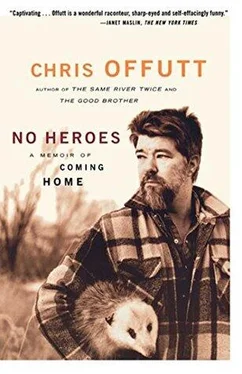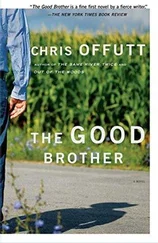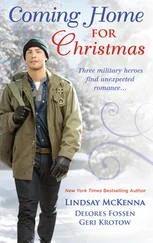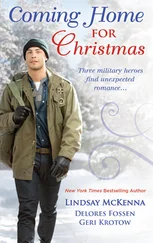As a kid, I walked through the woods to Haldeman’s only business, Georges General Store. The air smelled of floor oil. You could sit in an old leather chair by the wood-stove and drink pop forever. Three refrigerators stood against one wall, and everyone knew the contents — eggs and milk in one; bottles of pop in another; baloney, cheese, mustard, and mayonnaise in the last. Hand-hewn shelves held light bread, Vienna sausages, and dusty cans of soup.
To get there, you walked a dirt road along the ridge and descended a weedy path to the creek below. You followed another dirt road to the hardtop and crossed it to a creek. Searching its bank invariably produced enough pop bottles to trade for candy. I remembered Mom sending me for cigarettes but the store was closed. I crossed the swaybacked board that spanned the banks. Georges wife answered the door and said they were eating supper. She handed me the store key in exchange for the money, saying she’d give me the change when I returned the key.
Nine years ago I saw George’s cash register in the window of an antique store in town. I stared at it, remembering how the money drawer remained perpetually open. Now it is shut forever. When I think of George’s, I’m not recalling the actual event, but the last time I remembered it. In this fashion memory reclaims itself like land after a fire.
I showed Rita my grade school, built of enormous chunks of stone. So few children complete high school that the grade school offered an elaborate graduation ceremony with cap and gown, pomp and circumstance. My proudest day was being selected as valedictorian of my eighth-grade class. Past the school we followed Bearskin Creek up Bearskin Hollow along Bearskin Road, which crisscrossed the creek according to terrain. I took Rita to the top of the ridge near New Sill Graveyard where I first smoked a cigarette. I tried to explain my desire to visit a dead town, surrounded by evidence of its former glory. Haldeman flourished during the 1920s — boasting a train station, high school, saloon, barbershop, public gardens, tennis court, even plumbing and a baseball team. Beneath the humped hills were thick veins of unique clay that made hard bricks. Their ability to withstand enormous heat made them ideal for building kilns in the factories up north. The Haldeman Brickyard was the biggest employer in the region. Then Mr. Haldeman sold the town and moved away.
When I grew up, the town consisted of two hundred unemployed people. My grade school held a huge trophy case won by the high school that had been shut down sixty years before. Old railroad tracks traversed the land. Yellow bricks emblazoned with the name “Haldeman’ reminded every child that our hometown had once mattered. Now it was like the bricks — broke and crumbling, embedded in the past.
Rita and I drove up my home hill. I stopped at a slight plateau, where the old path cut through the woods, now grown over with weeds, indecipherable from the brush and saplings. I continued past the Gob Dump, a gray substance on which nothing grew, evidence of a long empty mine. I played kickball at the hilltop, using a low clay-dirt hill for first base, the tip of a buried rock for second, a locust branch as third. Home plate was a vague area of shade. One ridge road held the house I grew up in, where my parents still lived. Other roads held the Henderson homeplace, Randy’s trailer and woodshop, Faron’s old trailer, the Sam Bowen house now empty and in disrepair, Dixie Blizzard’s old place presently occupied by people from off, the Fraley man who moved here from Carter County thirty years ago and was still regarded as a stranger although his sons were Haldeman boys, and the Hortons’ old place now occupied by one of the Messer boys, whose family had lived on the hill longer than anyone. I was home. The roads were paved and the children gone.
I drove sedately down the hill to Buffalo Hollow. The road tightened and turned to gravel, then dirt, and finally became twin ruts with grass between. I parked the Malibu in a wide spot and cut the engine. Rita scooted close to me. I explained the history of Buffalo Hollow as a site for romance. She told me she was glad I’d brought her here.
On the way home we played Lynyrd Skynyrd on the car stereo. Rita sat beside me on the bench seat, exactly as I’d hoped a girl would sit twenty years ago. I kissed her at a traffic light. When the color turned green, I chirped a black mark on Main Street. Rita laughed and put her feet on the dashboard. We drove through town in five minutes. We stopped by the grade school and picked up our kids and took them to the Dairy Queen for dilly bars.
Arthur Becomes a Handyman
The boss wants to paint his room. I think maybe I get a piece of grub out of this and I said, yeah, I can paint. He had something that looked like a brush. I wasn’t sure what it was, a brush or a broom, but you could see through it. He had old paint. I started to mix them but the paint would separate. I had some violet in there, some red, some yellow and it became streaky. I was able to finish that room in two days. He came in and I said, waugh, there’s not enough paint, so I modernized it a little.
He was very impressed. It looked like marble when it dried out. He said, what else can you do? I said, I do carpentry. So I made a desk for him. I put some legs on a bureau top and I polished it nicely. He came into the machine shop and he never saw a more beautiful piece of furniture than that. He said, you do very well. From a man like this, it was like getting a million dollars. He was shooting people for much less.
Now came my biggest prize. I said, if you give me the equipment, I can put light in the main warehouse. We go with wire from one side of the camp to the other side and we got light. He was happy. I was his personal handyman after that.
He had a favorite man in the Jewish Police. I called him sergeant. He had a white shirt, whiter than white, and he was the object of envy. Nice uniform, clean hands, smelled like a rose. The sergeant had a beautiful head of hair. The prisoners were unshaven at this particular point. Their hair was long and they looked like slobs. So the boss said, get those prisoners cleaned up. I want everybody to shave their hair, shave completely. Everybody, you included, he tells his friend the sergeant in front of us.
The sergeant is asking for permission to leave his hair on. The boss said, oh sure. You have a beautiful head of hair. I would never dream to deprive you of this beautiful head of hair. And he turns around, and shoots the sergeant in the back of the head.
He tells everybody to take the body and bring him over there. And he led the whole procession to the dump where we have our garbage. He says, now we gonna bury this beautiful Jew. We threw him in the garbage and there was rotting potatoes and all kind of shit. He says, everybody kneel and say a prayer for this beautiful man. Everybody kneels at the dump. He goes from one guy to another guy and says, are you praying? Are you praying? Do you pray? Now bury the sonofabitch.
That was my boss.
They took Arthur to one camp and Beno and me to the different camp. There were big cars for the transport of animals. Beno and me wind up in Plaszow. Arthur had a better camp.
I saw Beno. He was fourteen. He grew so much, I could not believe it. Beno was a short little guy, he grew to six feet. They took him from Plaszow after a year. He was sixteen. I don’t know where Beno went and I never heard from him and Arthur he feels guilty. It’s his nature that he blames himself. We don’t know where he was and where he died.
Losing Beno was worse for Arthur than his father and mother. That he was not taking care of his little brother. Like Sam would feel guilty that he didn’t take care of James. It’s a terrible feeling. I was lucky enough that I didn’t really have guilt. My mother, I saved her for three months. I could not do more than I did.
Читать дальше












